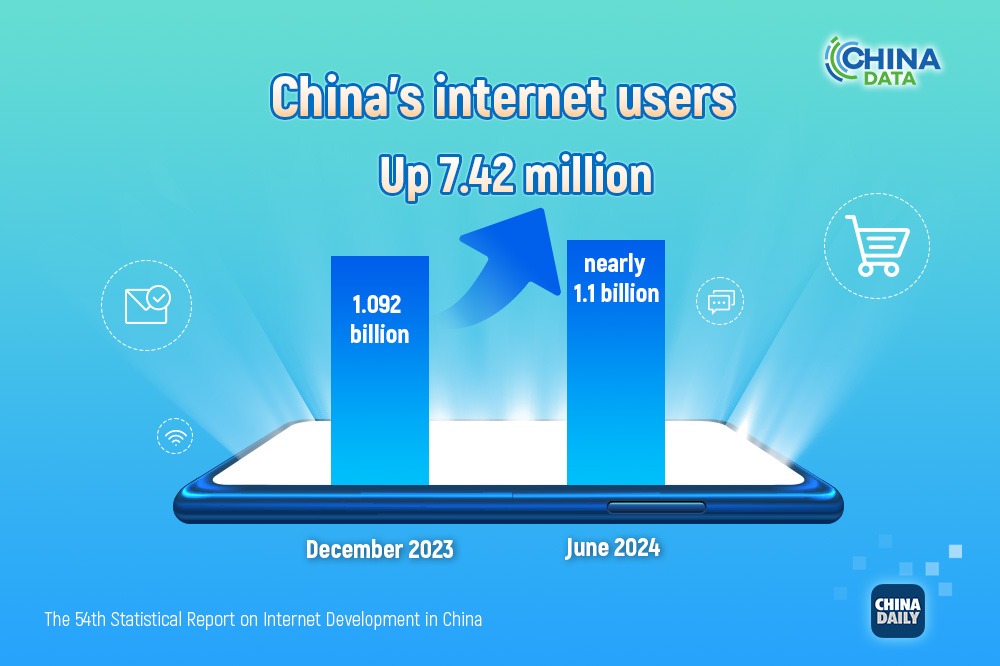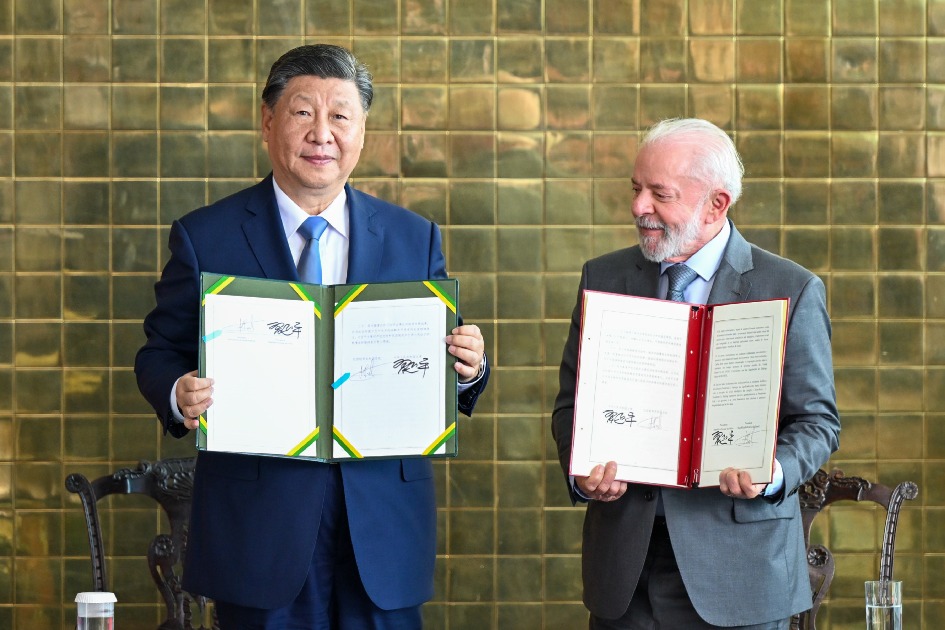Tech decoupling points to path of mutual loss
By ZHANG JIANLIN | chinadaily.com.cn | Updated: 2024-09-28 13:18

In the context of globalization and informatization, the exchange and cooperation between China and the United States in the technology sector have played a crucial role. However, in recent years, with the rise of new technologies such as big data, the Internet of Things, 5G communication and artificial intelligence, alongside the complex changes in the global political and economic environment, Sino-US technology relations are facing unprecedented challenges and opportunities.
The discourse surrounding "technology decoupling" is becoming increasingly prominent, but before diving into that, it is essential to look beyond the surface and explore the pros and cons of technology decoupling, as well as how China and the US can seek broader cooperation and development amidst the new technological wave.
First, technological development has its own logic and rules. The rapid advancement of new-generation information technologies such as big data, the Internet of Things, 5G communication and AI is driving profound changes in global industrial and supply chains.
This not only necessitates deeper cooperation and communication among countries at the technological level to adapt to the development and application needs of new technologies, but it also brings new growth points and competitive advantages to the global economy. For China and the US, as the world's largest economies and technological powers, there is a broad foundation for cooperation and common interests in new technology fields.
However, as competition intensifies in the economic, technological and security domains, calls for technology decoupling have started to rise. This mainly stems from a reassessment and adjustment of each side's technological strength, market potential and national strategic interests.
As a global leader in technological innovation, the United States occupies a leading position in many critical technologies. With the rapid rise of Chinese technology, however, the US has begun to pay more attention to preventing potential technological and security risks while maintaining its technological advantages. This concern, which is exaggerated most of the time, has fueled discussions and practices surrounding technology decoupling.
For China, technology decoupling could mean achieving breakthroughs and innovations in certain key technological areas to reduce dependence on foreign entities and enhance overall national technological strength and international competitiveness. Nonetheless, China also recognizes that complete technological independence is unrealistic; international cooperation and communication remain vital drivers of technological progress. Therefore, how to strengthen scientific and technological cooperation with the United States while safeguarding national security and development interests is a significant issue for China.
Technology decoupling could have far-reaching impact on both countries. In the short term, there may be a disconnection in certain technological fields, leading to blockades, intellectual property disputes, and even trade sanctions, which would directly affect the development of both nations' technology industries and international trade relations.
In the medium to long term, technology decoupling could hinder global technological progress, weaken both countries' capacity to address global challenges (such as climate change and public health), and ultimately affect the shared development of humanity.
For the US, while technology decoupling might consolidate its global technological leadership in the short term, it could, in the long run, slow innovation, increase R&D costs, and complicate market deployment. Moreover, an excessive emphasis on technological isolation could disrupt the global supply chain system, harm the multilateral trading system and eventually backfire on its own interests.
For China, technology decoupling may spur increased efforts in independent innovation and accelerate the conversion and application of technological achievements. However, this could also raise R&D costs, limit international technological exchanges and collaborations, thereby affecting the speed and quality of technological innovation.
As the two largest economies in the world, China and the United States are core nodes in the global value and supply chains. Technology decoupling could lead to the fragmentation of global value chains, undermining the stability and efficiency of supply chains, which in turn could disrupt the global economy. Especially in an era of rapid technological advancement, any interruption in technology could have disruptive effects on critical industries and sectors.
In the face of global challenges such as climate change and public health crises, China and the US need to collaborate, leveraging their respective strengths in technology to find solutions. Through international cooperative efforts such as data sharing, technological R&D, and promotion, both sides can more effectively tackle these global challenges, safeguarding the shared well-being and future of humanity.
China and the US each have strengths in technology. Through cooperation, they can promote mutual complementarity and amplifying effects. This collaboration not only accelerates the pace of technological innovation but also fosters the conversion and application of technological achievements, providing new growth points for the global economy.
Moreover, collaborating to cultivate international technological talent can also enhance the overall level and development potential of global technology.
China and the US need to deepen their exchanges and cooperation mechanisms in the technological field based on equality and mutual benefit, enhancing trust and communication to resolve differences and issues. Both sides also should actively advocate for an open and inclusive approach to technological development, promoting the establishment of a global innovation framework under the awareness of a shared human destiny. By fully leveraging technology as the primary productive force, they can inject new and powerful momentum into the sustained and healthy development of the global economy.
The author is general manager of Beijing Sanju Era Technology and is one of pioneers in the digitalization of Chinese enterprises.
























